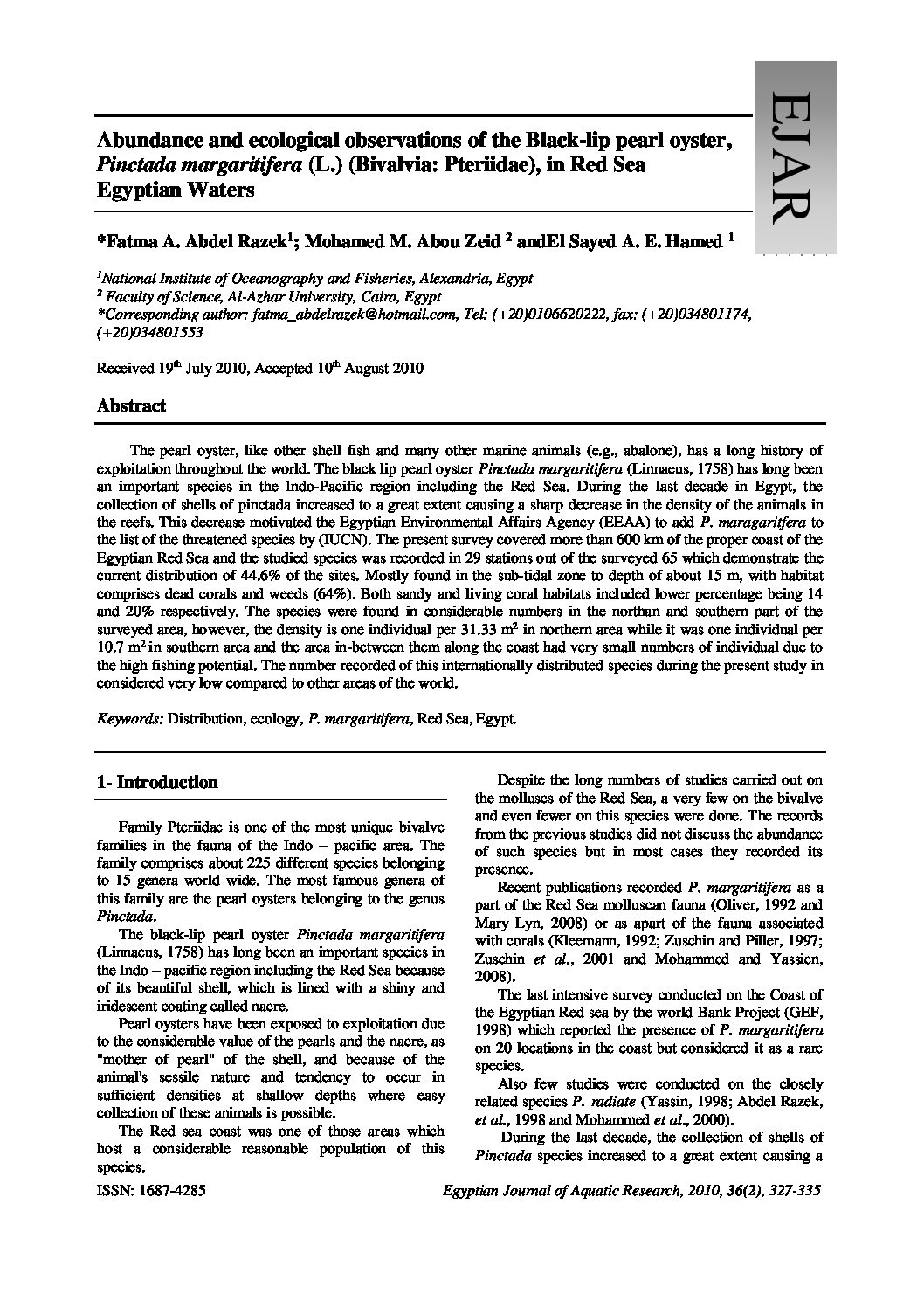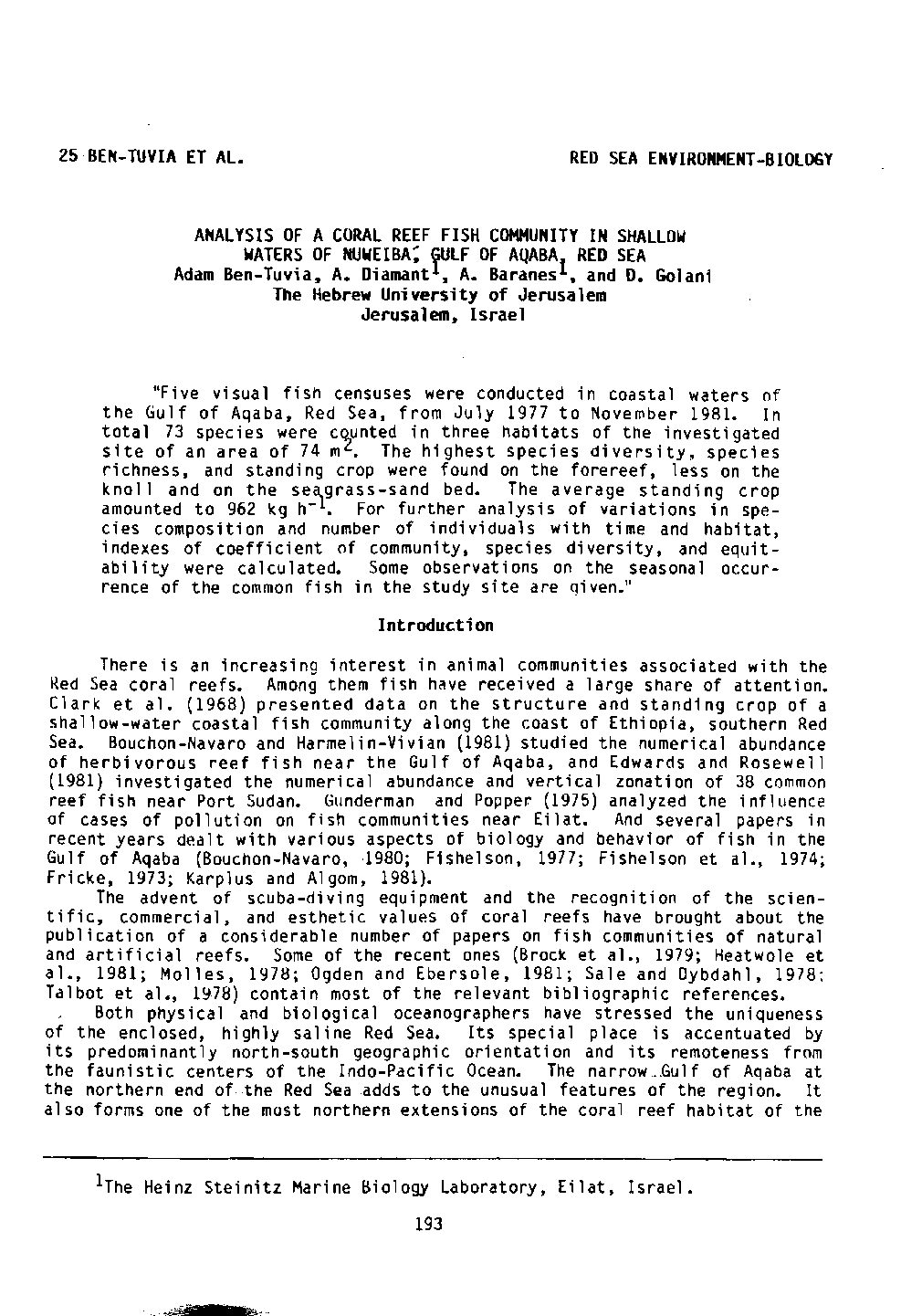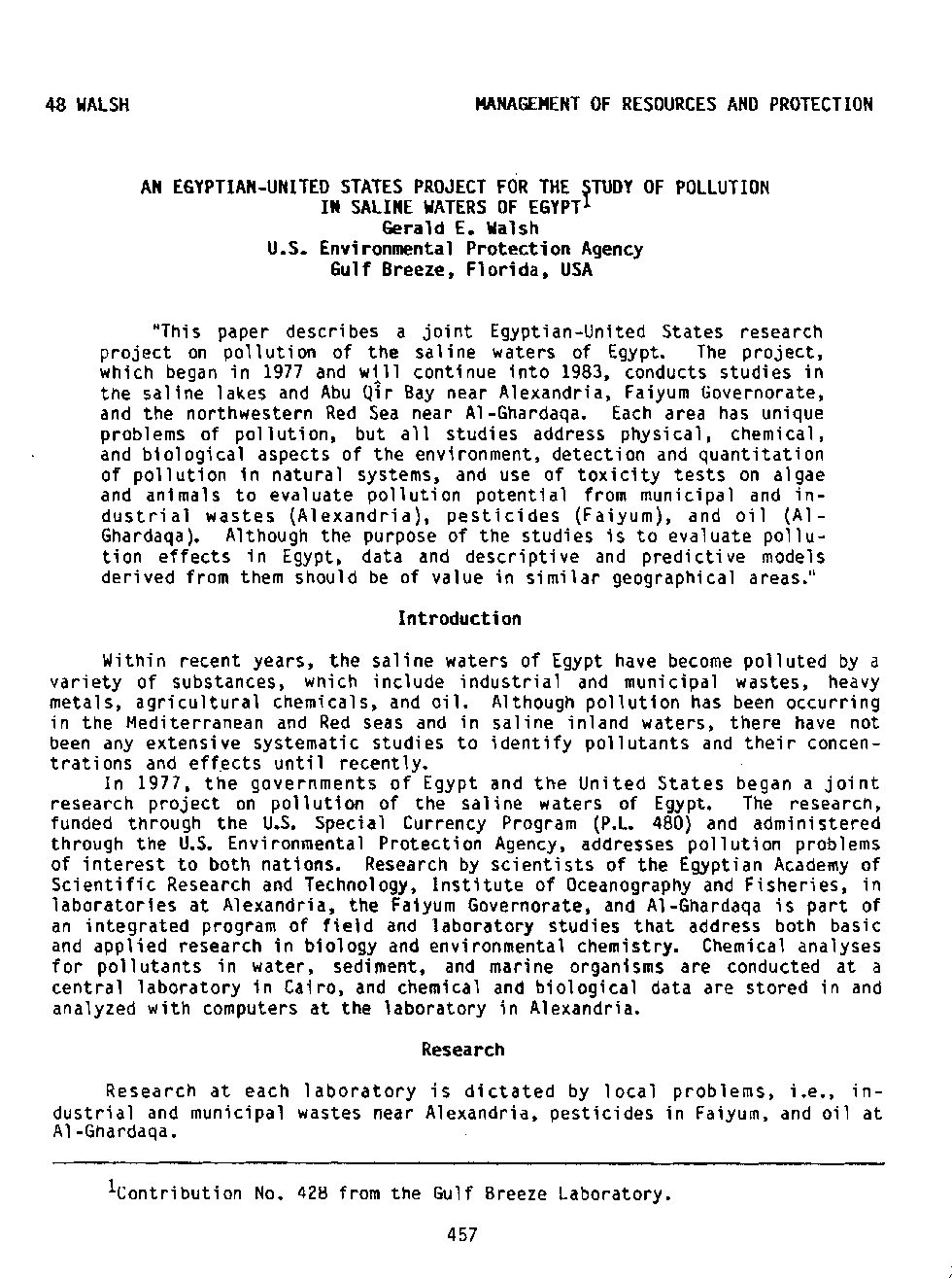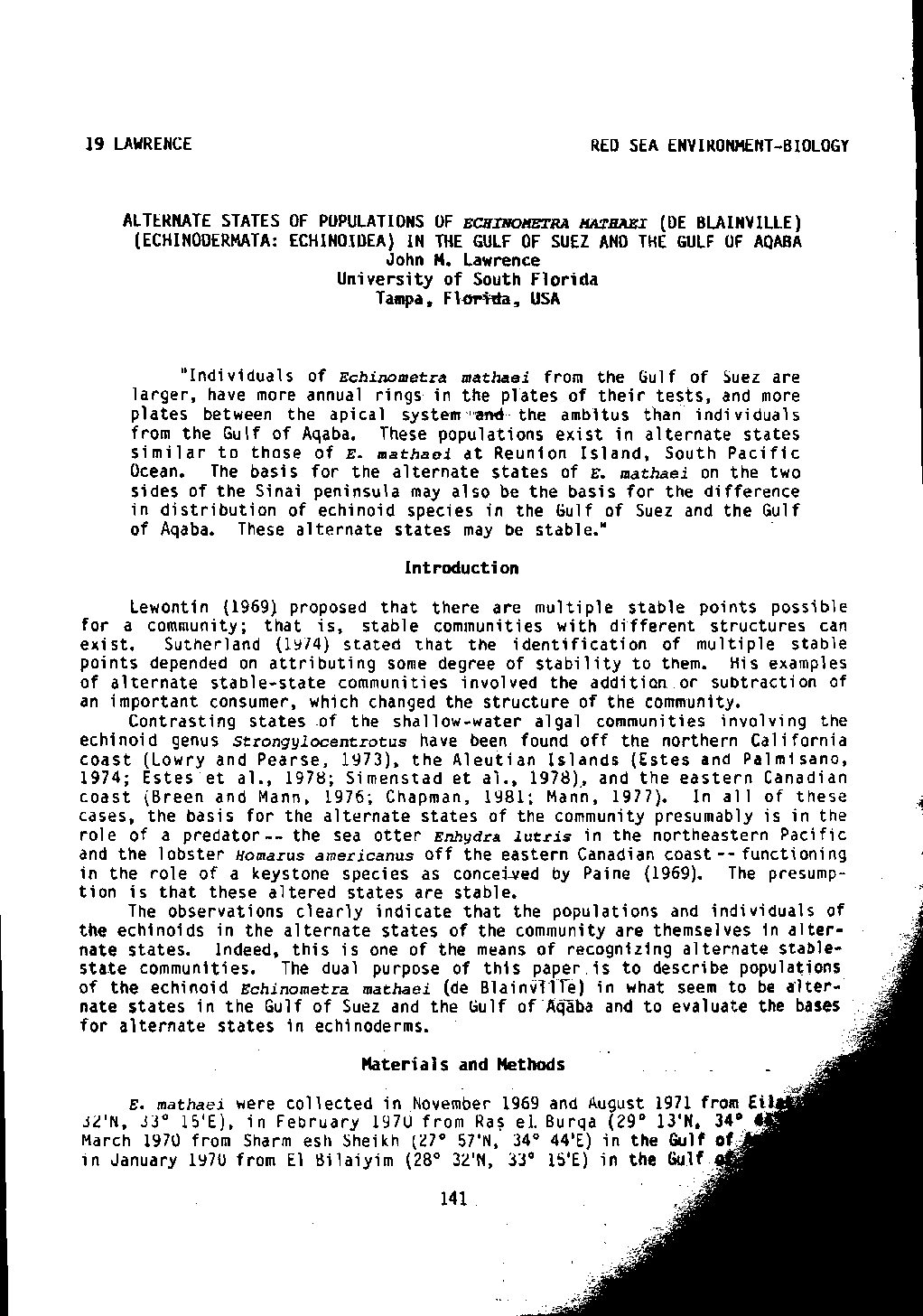Categories
vol-36Comparative study of the antibacterial activity of Ulva lactuca and
Pterocladia capillacea extracts before and after encapsulation in
Ca-alginate beads
Aida H. Shobier1
, Sahar Wefky2
, Safaa A. H. Abdel Ghani3
and El Sayed H. El Ashry4
1
Marine Pollution Lab, 2
Microbiology Lab, 3
Marine Chemistry Lab, Division of Marine Environment, National
Institute of Oceanography and Fisheries, Alexandria, Egypt
4
Chemistry Department, Faculty of Science, Alexandria University, Alexandria, Egypt
*Corresponding author Sahar Wefky, Tel: 03-4412750, e-mail: [email protected]
Received 5th Jun 2010, Accepted 27th July 2010
Abstract
The antibacterial activity of methanolic-L extracts of the marine algae Ulva lactuca (Linnaeus) and Pterocladia
capillacea (Gmelin) against three fish pathogens; Aeromonas hydrophila, Vibrio anguillarum and Pseudomonas
fluorescens was determined before and after their encapsulation into Ca-alginate beads. When the methanolic-L
extract of P. capillacea was encapsulated, its antibacterial activity proved to be superior from that of free extract.
The encapsulated extract of U. lactuca showed good antibacterial activity against V. anguillarum (P<0.05).
Conversely, the free methanolic-L extract of this alga exhibited significant (P<0.05) reduction of A. hydrophila and
P. fluorescens activities more than the encapsulated extract. The surface morphology of the formed beads was
studied using scanning electron microscope (SEM). Changes of the characteristics of the beads were investigated by
FTIR spectroscopy.
Keywords: Antibacterial activity, Ca-alginate beads, encapsulation, Pterocladia capillacea, Ulva lactuca







